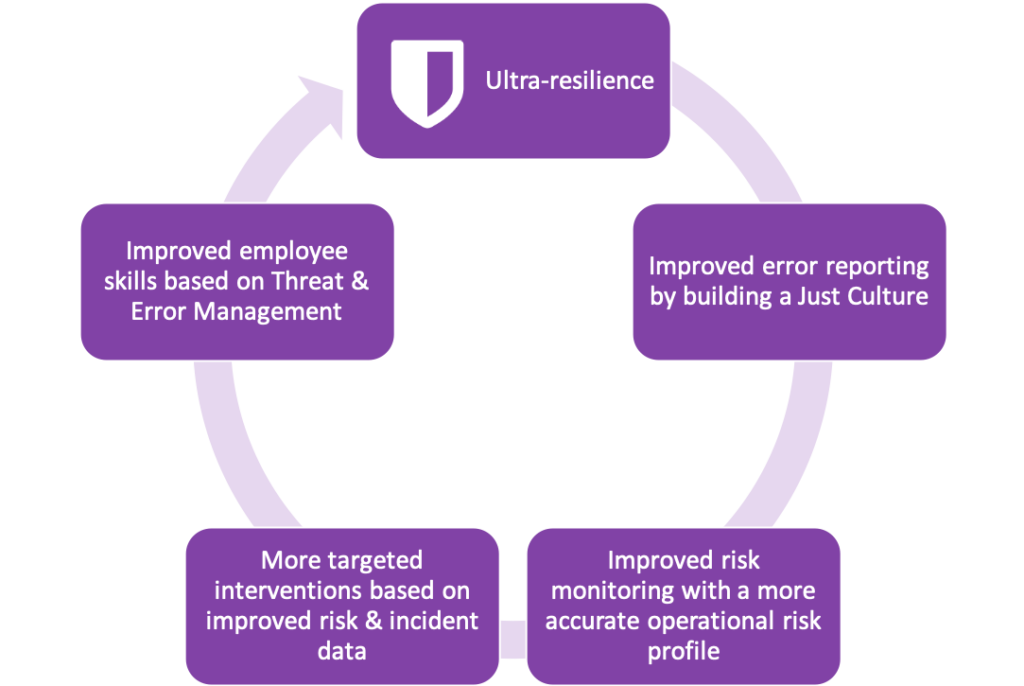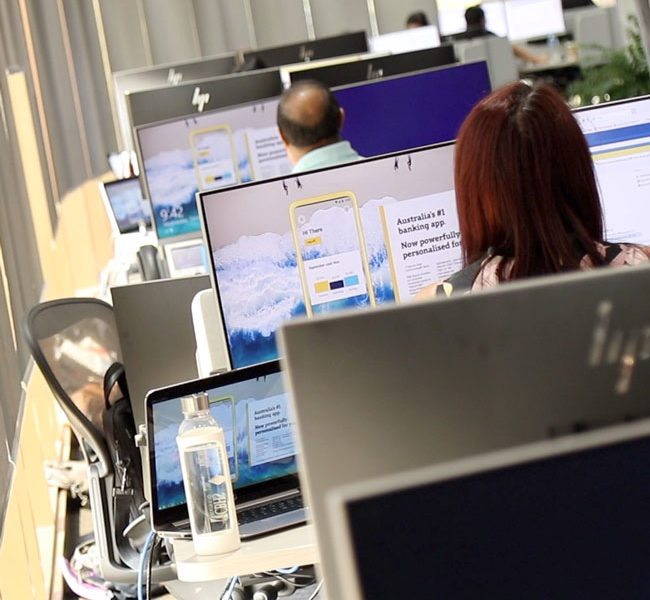






- Capability
- Human Factors Consulting
- Human Factors Engineering & Evaluation
- Human Error Management
- Operations & Safety Diagnostic
- Human Factors Investigations & Trend Analysis
- Just Culture & Psychological Safety
- Operational Performance & Training
- Automation Design, Evaluation & Implementation
- SMS Design & Procedures
- Argos Protocol (Risk Monitoring)
Human Error Management Systems
Cortexia's Human Error Management Systems (HEMS) create a systemic approach for your business to manage human risk and error. By helping you identify, monitor and control risk using high-reliability best practice, Cortexia's HEMS unleash the potential of your operations to deliver big, bottom-line improvements. Our HEMS approach is based on Ultra-Resilience and centres on:

- Building a Just Culture to enhance operational error reporting (identifying your realistic operational risk)
- Applying contributing factors to investigations and analysis in order to identify systemic issues that are likely impacting performance across individuals (improved targeting of system interventions)
- Training employees in the field-craft of Threat & Error Management in order to reduce the likelihood of human error
HEMS are becoming increasingly popular within the banking and motorsport industries where human error and certain human factors can have detrimental consequences.
Led by Dr. Damien Armenis, Cortexia can take the latest human error, risk and cognition research, and apply it to your tailor designed HEMS for your requirements. The resulting HEMS allows you to monitor, assess and mitigate risk within your operations and service.
We are confident that we can enhance your business performance, minimise risk, and streamline operations. If you would like to improve your results and believe we can help, please contact us.
![]() “Cortexia provided excellent service to our project. Their work helped us assess the feasibility of an automated system and helped us with its implementation.”
“Cortexia provided excellent service to our project. Their work helped us assess the feasibility of an automated system and helped us with its implementation.”
Tony Silvestro – Portfolio Manager
 “Damien is a focussed, proactive and flexible operator who has provided invaluable project support. I would recommend Damien to support any complex project development that requires Human Factors expertise.”
“Damien is a focussed, proactive and flexible operator who has provided invaluable project support. I would recommend Damien to support any complex project development that requires Human Factors expertise.”
Edward Macfarlane – Principal Consultant

“Cortexia delivered a series of decision making workshops for some of our brokers, traders and analysts, along with a Human Error Management System. They were able to concisely break through the science and jargon to provide our staff with pragmatic tools they can apply every day at the trading desk to minimise human error. Cortexia’s error management system is now allowing our Risk team to better monitor and assess our human risk. Both subjective feedback from the staff and objective measurable financial performance have been very favorable. We will be using Cortexia again.”
Tom Simmons – Vice PresidentOUR EXPERTISE; YOUR PERFORMANCE.

The Pitfalls of Automation
November 16, 2016Humans retain a vital role in most high-risk industries, particularly in their abilities to problem solve and respond to unanticipated events. The demands on these operators have been increasing and are likely to reach a point where current human and technological capabilities will be severely strained. This situation has in the past, and will in the … Read More

The Human Factors of Banking and Finance
June 19, 2017THE HUMAN FACTORS OF BANKING & FINANCE The common thread in most studies dealing with financial decision-making deals with mathematical models of financial prediction. In a similar model, traditional approaches to risk management focus on absorbing or “controlling” risk to make profit (Unser, 2000). In the banking and finance industry, reducing error is often attempted … Read More

Safety Leading Indicators
June 11, 2018Developing and Implementing a Safety Lead Indicator Program Organisations are increasingly moving towards an approach to safety that is proactive and predictive. For this to occur, a socio-technical systems approach to safety is often recommended. This involves considering all variables within the work environment and how they interact with one another (e.g., people, procedures, systems, … Read More

Psychological Safety: Feeling safe to speak up?
March 23, 2023Leaders who make the connection between resilience and psychological safety reap the benefits. We just read a wonderful HBR article written by Maren Gube and Debra Subatini Hennelly and have decided to summarise below along with our unique human factors and ultra-resilience take: Gube and Henelly (2022) highlight that as leaders, it’s crucial to recognise the connection between psychological safety and … Read More

Human Performance in Military C2
October 27, 2016Existing military command and control (C2) frameworks have been useful in highlighting technology related issues and their direct effects within an organization. They are, however, limited in assessing the full range of impacts resulting from technology insertions and in exploring the links between C2 changes and battlefield effects. Additionally, traditional C2 frameworks have … Read More

Human Factors Improves Outcomes in the Banking Industry
February 17, 2021What happens when a financial institution takes a traditional approach to risk, with the aim to eliminate or minimise human error with procedure laden controls and a focus on individuals’ actions? Unless the industry is highly stable with very little complexity involved, it can be like trying to fit a square peg into a round … Read More

